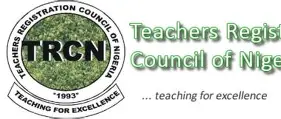The Teachers Registration Council of Nigeria (TRCN) has expressed deep concern over the increasing number of unqualified teachers in schools across the country, describing the situation as a major factor contributing to the steady decline in educational standards.
The Chief Executive Officer of TRCN, Dr. Ronke Soyombo, made this known on Monday during an appearance on Channels Television’s “The Morning Brief,” as part of activities marking the 2025 World Teachers’ Day celebration, themed “Recasting Teaching as a Collaborative Profession.”
Dr. Soyombo lamented that a significant number of individuals currently teaching in Nigerian schools, particularly in private institutions, lack the professional qualifications required to effectively deliver quality education.
“There are many unqualified teachers in the profession. We have those teaching in classrooms but don’t have the teaching qualifications, particularly in private schools,” she said.
READ ALSO: FG Bars Schools Without Certified Teachers From Hosting Exams
She explained that while some individuals possess a genuine passion for teaching, their lack of formal training and certification has hindered their integration into the profession.
“It is one thing for you to say you have been to teacher’s college, and it is another thing to be able to break it down to the level of the students to soothe their specific needs,” Dr. Soyombo noted. “This challenge has to be addressed, and as soon as we have the accelerated programme, that is going to bring a lot of teachers in, because they don’t want to come to public schools. What is stopping them is that they don’t have education degrees.”
She revealed that the TRCN currently has about 1.4 million registered teachers nationwide, but plans are underway to expand that number to 20 million within the next two years through digital registration and accelerated training programmes.
“We have digitised our systems so that more people can be able to register,” she said. “Every teacher has a gift which is different from one person to another. But what we are propagating in education is for everybody to come together and plan lessons together.”
READ ALSO: Kano Govt Declares State of Emergency On Education, Recruits 5,632 Teachers
Dr. Soyombo emphasized the importance of collaboration in modern education, noting that teamwork among teachers improves lesson delivery and fosters cooperative learning environments.
“You might be three teachers teaching a particular year group, but if you come together and plan lessons together, you are bound to come up with something richer than when you work in isolation,” she added. “It is very important that we pass the culture of collaboration down to our children.”
To address the shortage of qualified teachers, she disclosed that the Council, in partnership with the government, is implementing accelerated Professional Diploma in Education (PDE) programmes.
“There is no doubt that we have shortages of teachers, so what we are doing with this particular government is to accelerate professional diploma in education,” she explained. “We are accelerating the course to six months for experienced teachers, so that as soon as they are through, they can have experience. This will make us have enough hands in the teaching line.”
READ ALSO: PhD Lecturers Resign From Northern University Over Poor Pay, Mismanagement
Dr. Soyombo expressed optimism that these initiatives will attract more professionals into the education sector, enhance teacher competence, and promote continuous professional development.
“What the TRCN is also doing is looking at how we can upgrade teachers. We are also supporting them with resources in
classes, because some teachers are very good and are looking for how to plan lessons to support other teachers, and that will also encourage others to come in,” she said.
Meanwhile, Nigeria’s First Lady, Senator Oluremi Tinubu, in her 2025 World Teachers’ Day message on Sunday, lauded teachers for their dedication and sacrifices, describing them as “true heroes, shaping minds, nurturing dreams, and guiding generations.”
She called for sustained efforts to improve teachers’ welfare and professional development, stressing that the teaching profession remains central to national transformation and global progress.
“Improving the welfare and capacity of our teachers is key to strengthening the education system and preparing our children for a brighter future,” Mrs. Tinubu stated.

